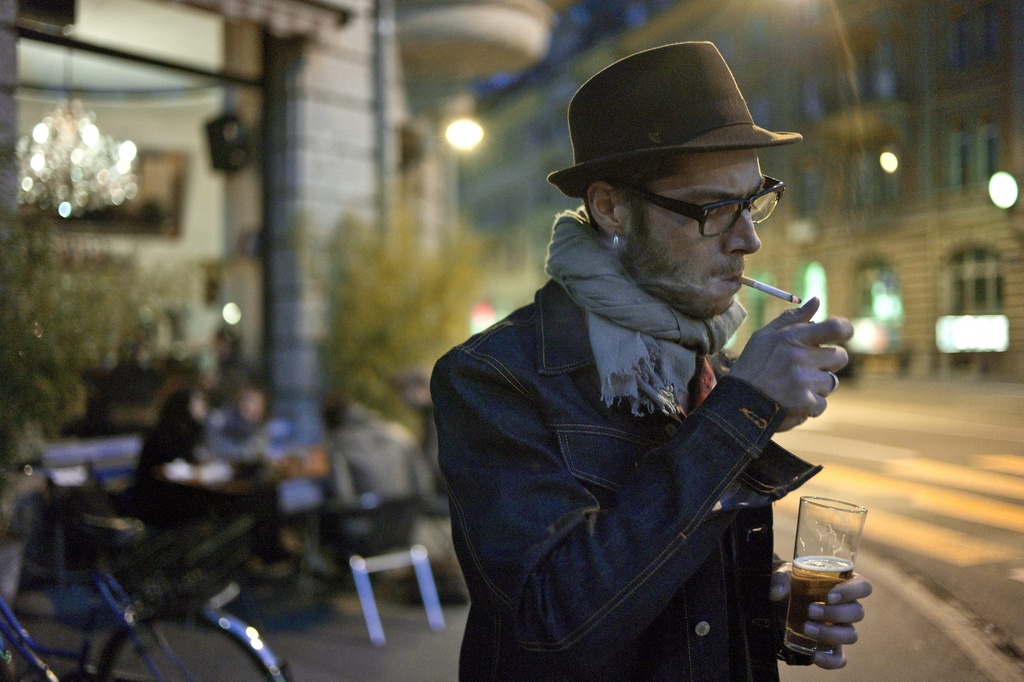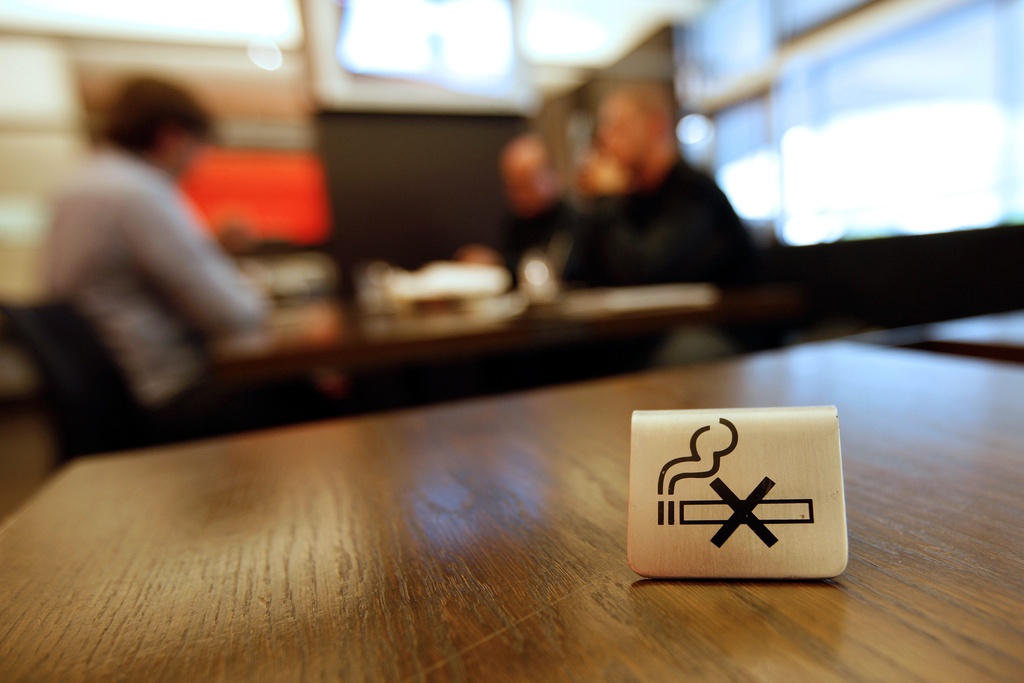Swiss start to cut back smoking habit

A survey of Swiss smoking habits over the past decade shows fewer teenagers taking up the habit and half of smokers wanting to give it up.
While the overall number of smokers in Switzerland has remained stable in recent years, industry experts predict more demographic shifts among smokers in the years ahead.
According to the study commissioned by the Federal Health Office, 27 per cent of the Swiss population aged 14-65 were smokers in 2009, the same percentage as in 2008, and a slight drop from the 33 per cent in 2001.
“The tendency to smoke is going down, so we are very glad about this because smoking is one of the main risk factors for a number of chronic diseases and premature death,” Ruth Hagen, spokeswoman for Addiction Info Switzerland, told swissinfo.ch.
However, the number of 20 to 24-year-olds who smoke on a daily basis is on the rise; it went up three per cent from 2008 to 2009.
In that age group, 28 per cent smoke daily, with another 11 per cent lighting up regularly – meaning that 39 per cent of Swiss people in their early 20s smoke.
On the other hand, the youngest people surveyed seem less and less tempted by tobacco. In 2001, 31 per cent of 14-19-year-olds said they smoked; by 2009 the figure had gone down to 22 per cent.
“We believe that the discussion of the dangers of [passive] smoking certainly had an influence on the smoking prevalence these past few years,” said Hagen.
The survey also examined the habits of young people aged 16-19; in particular, those working as apprentices or attending vocational school compared with those attending secondary school. It found the number of smokers has gone down in both cases.
More quitters
Men account for the majority of smokers – 31 per cent of men have the habit – compared with 23 per cent of women. That’s consistent with previous years. Whether male or female, many smokers would like to stop.
In 2009, half (51 per cent) of the smokers surveyed in Switzerland said that they wanted to quit – and 26 per cent said they planned to do so within the next six months.
“The smoking ban might lead to a reduction of the consumption and some people will try to take the opportunity to stop smoking. There is always a considerable percentage of people who want to stop and I think people will take the opportunity to do so,” said Hagen.
Over the past few years, smoking bans have been launched in various cantons. After much pressure from non-smokers, a nationwide smoking ban came into effect on May 1.
Smoking is now forbidden in Swiss public spaces such as restaurants, bars, schools and theatres. However, catering establishments have the option of creating separate ventilated smoking rooms, and locales smaller than 80 square metres may become designated smokers’ dens.
The new ban will likely have an effect on the number of smokers as well as the sale of tobacco products. But there are no solid figures yet.
Long-term decline
“It is too early to measure possible consequences on tobacco sales,” François Thoenen, spokesman for Philip Morris, told swissinfo.ch.
“Generally, in countries having implemented smoking restrictions in indoor places accessible to the public, we experienced a decline of consumption of tobacco products, and afterwards, a stabilisation on a level slightly lower than before such restrictions.”
Yet as Thoenen pointed out, there are other measures that can play a role – such as smoking cessation campaigns.
Mathieu Janin, spokesman for British American Tobacco Switzerland, has also noticed a reduction in the number of smokers.
“Smoking is declining slightly every year. We lose an average of about 1.5 per cent each year, and this year we will lose a little bit more, I think, because of the new restrictions,” Janin told swissinfo.ch.
Now that smokers need to step outside to light up, sunshine and higher temperatures give tobacco sales a boost.
“Smoking also depends on the weather. If the weather is nice, people will smoke much more,” said Janin.
That’s if they start at all. The number of people in Switzerland who have never smoked has steadily risen since 2001. For 2009, that figure was a decade-high of 54 per cent.
Underage people can easily buy cigarettes in Switzerland, tests have shown.
Trials by Addiction Info Switzerland and centres for the prevention of smoking in the cantons of Vaud and Fribourg showed the respective age limits of 18 and 16 were not followed. In 82% cases, underage teenagers could buy cigarettes. Only 24% of outlets asked for ID.
The situation has only slightly improved since 2007 when similar tests were carried out and found 85% of young people could buy cigarettes despite being underage.
The tests showed bigger chains were less vigilant than smaller stores.
In Switzerland there is no national legislation limiting the age at which cigarettes can be sold. Age limits are in force in 17 cantons. Canton Vaud was the first to set an age limit of 18 and Lucerne was the first to fix a limit of 16.
Michael Graf of Addiction Info said: “Stopping sales of tobacco products to children and teenagers is an important means of prevention. It can delay prevent the start of consumption or delay it. The results of these test purchases are very unsatisfactory. Further efforts are necessary for the protection of youth to become effective.”

In compliance with the JTI standards
More: SWI swissinfo.ch certified by the Journalism Trust Initiative












You can find an overview of ongoing debates with our journalists here . Please join us!
If you want to start a conversation about a topic raised in this article or want to report factual errors, email us at english@swissinfo.ch.